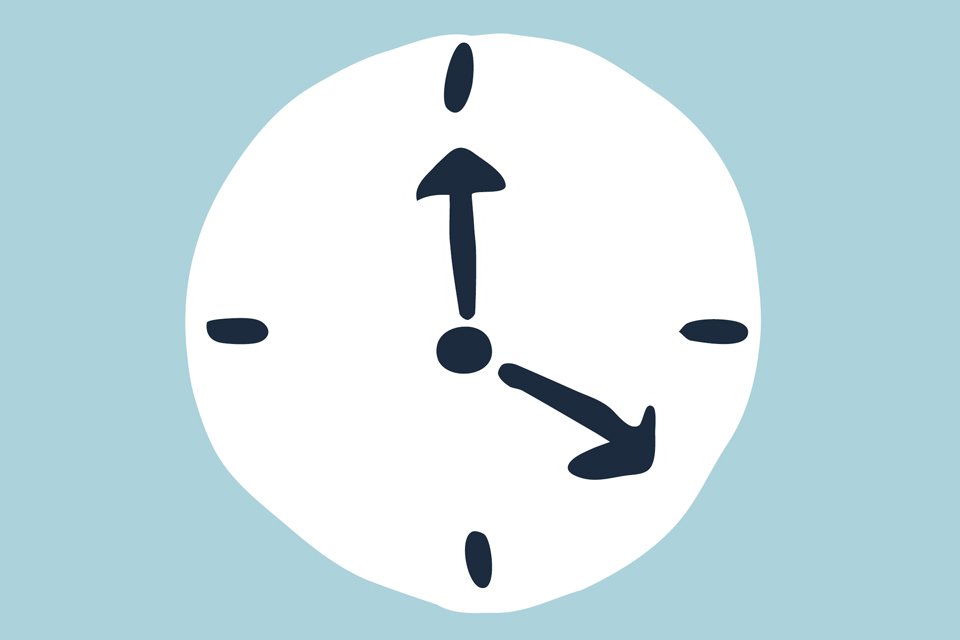Our time is valuable, however we don’t always treat it this way. From being roped into tasks we don’t want to do, continuing to be involved in things we no longer want to participate in or even spending too long on the things we do want to do, it’s easy to lose track of how we spend our days and therefore our life.
“We often realise that time is precious later in life, when work and family for example create competing demands on our time and we feel like we’re losing control over it,” says Elise Clement, a life coach and wellbeing consultant.
“It’s important to keep in mind that time is a finite resource for us all and that it should be valued as such,” she says. “No matter how hard we try, 24 hours is all we’ve got in a day and our days on this planet are counted.”
Focus on the big picture
While some days are jam-packed, others can slowly stretch before us. When we have a lot of time on our hands, we can more easily feel obligated to say yes to things we wouldn’t ordinarily want to do, or to not make the best use of our day. Or we could be under the pump, not having time for our passions and goals as we keep saying yes to what other people need from us.
“We tend to get lost in myriad distractions which take our attention away from the meaning we so desperately seek to create in our life,” says Elise. “In order to recalibrate, think about your legacy.”
Elise suggests picturing yourself lying on your deathbed and asking yourself what you would like to be remembered for and what you would regret not having done.
While this activity might seem grim, it can give us a clear picture of what we want our lives to look like — how we want to behave, what we want to achieve and what we want to leave behind. With this knowledge we can better craft our days in order to meet this vision of ourselves. And as many of us avoid thinking of our final hours, this visualisation will also gift you with a deeper appreciation of time.
Conduct a time audit
If you’ve ever used a time-tracking app on your phone, you were probably surprised (and even horrified) by how long you spend on social media or checking your email. Do you know just how long your commute is each day or how long it takes you to complete a piece of work?
A time audit, where you systematically track how you spend every minute of your day, will give you a better idea of just where the hours go. Elise recommends conducting this audit during two weekdays and one day on the weekend so that you have enough data to extrapolate but you’re not adding more to your to-do list.
Record everything you do, from working or studying, watching TV, preparing meals, meeting up with friends, exercising, checking your phone, etc. This information will show you what you can cut back on so that you can add more in to ensure your time aligns with your values and goals.
For instance, if you want to be remembered for giving back to the community, you can allocate some time to volunteering. If you want to work your way up the career ladder, you might want to dedicate more of your time to working or meeting with a careers coach or mentor.
You may find that you have more free time in your day than you had thought. “If this happens it’s important to resist the temptation to fill in these gaps, no matter how meaningful and alluring the activity may be,” recommends Elise. “Not every single minute of the day needs to be filled with stuff. Leaving the empty spaces alone is one of the most underrated ways to drastically increase our health and wellbeing.”
Learning to say no
When we say yes to everything, we run the risk of feeling stretched, stressed and even resentful if we end up doing something we didn’t really want to do. It can take time away from doing what we want to do, which might mean fewer opportunities to see our friends and family, not being able to take on that dream work opportunity, hone that talent, start a new hobby or even just be able to read more or have downtime.
Establishing boundaries can mean saying no; something that may not come naturally to you and can feel intimidating, especially if you are a people-pleaser. Elise recommends the following tips for getting more comfortable with “no”: Practise (in front of the mirror if you need to) saying no politely and with kindness. Don’t justify yourself but instead be direct and simple in your answer: “Thanks for asking but I can’t make it this time.”
If you need to, you can buy yourself time in the moment by saying, “Let me get back to you on that.” This will allow you to consider your options and respond with more confidence.
If you really want to help someone but have limited time or ability, feel free to suggest a compromise: “I can’t help you right now, but I’d be happy to look at this in a couple of weeks.” Or you could be creative: “I can’t help you in this way because I’m committed to other projects at the moment, but here’s what I can do.” Remember that when you say no, you’re not rejecting a person, you’re just turning down a request.
Uncovering self-beliefs
In our society these days, “busy” is worn as a badge of honour. How often do we respond this way when people ask how we have been? To say you haven’t been busy, and therefore haven’t been productive, can seem shameful.
While our lives can demand a certain amount of busyness outside of our control, it’s also worth considering if we are purposely trying to keep ourselves busy and why we need to always be flat-out.
“We may do this because we’ve learned that being ‘on’ and wired all the time will attract approval and praise, or because we don’t want to be seen as lazy,” says Elise. “It’s important to assess these beliefs in line with our most important values and the goals we have set for ourselves — are these beliefs serving us?” she continues.
“Most of the time these beliefs stem from low self-worth,” she says. “When your self-worth is low, you will naturally tend to place everyone else’s needs before your own and spend your time trying to be all things to all people. This is a recipe for disaster and burnout.”
If this sounds all too familiar, you can shift your perspective. Understanding these underlying beliefs is the first step and then you can work to prioritise your own needs. Your time is valuable and it’s up to you to protect it.
Want to learn more about being grounded? Visit our grounded archive page.




